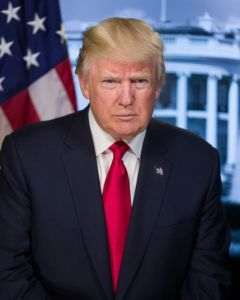The Damascus Stock Exchange (DSE) reopened on June 2 after a six-month suspension, thecradle.co reports, noting that Syrian officials, including Finance Minister Mohammad Yasar Barnea, attended the reopening ceremony. The move is part of what the country's officials describe as a broader effort to "support the stability of the Syrian Arab Republic.”
The event is seen as a positive sign of economic revival after 14 years of devastating, US-backed civil war. A day before the stock exchange reopened, Saudi Arabia and Qatar announced a joint three-month financial aid package for public sector workers in Syria.
The DSE - Syria's only stock exchange - was closed in December 2024, a decision aimed at reviewing and assessing the financial and operational performance of listed companies, respectively mitigating potential market manipulation, capital outflows and other financial risks, the cited source notes. The closure also took place against the backdrop of the lightning offensive by the Al-Qaeda-affiliated Hayat Tahrir al-Sham (HTS) armed group, which toppled the government of Bashar al-Assad.
After reopening, the DSE will operate as a private company, modernizing its infrastructure and attracting foreign investment by introducing electronic systems, improving settlement processes and expanding the range of available investment instruments. Of the 28 companies listed on the DSE, 14 have resumed their activities after meeting the necessary reporting requirements, while others remain suspended from trading pending the fulfillment of these requirements.
"The stock exchange will operate as a private company and will be a true center for Syria's economic development, with a strong focus on digital,” Barnea told the state news agency SANA, stressing that the new leadership intends to "facilitate business operations and open doors to promising investment opportunities.”
According to shafaq.com, the minister also said: "The return of the stock exchange is not just a technical step, but a clear message that the wheels of the economy are turning again and a new phase of recovery is underway. The stock exchange is undergoing a structural change, and it will become a private entity. We will achieve digital transformation and we aim to make the stock exchange a powerful tool for attracting investments.”
At the end of 2024, before the suspension of operations, the Damascus Stock Exchange was recording solid figures: the trading volume had reached almost 29 million shares in the last quarter, valued at over 101 billion Syrian pounds (approximately 7.768 million dollars). On November 28, 2024, the main index of the Exchange reached a historical high, approaching the threshold of 108,000 points.
The last trading session before the closure took place on December 5, 2024.
The reopening of the DSE coincides with the relaxation, towards the end of May, of the international sanctions imposed on Syria by the US, Europe and the UK, as well as with an increase in economic development projects.
While challenges remain in Syria - including widespread poverty, infrastructure destruction and political uncertainty - the reopening of the stock exchange is seen by many as a promising step towards normalization and economic recovery.
Sulaiman Mouselli, deputy director of the Damascus Stock Exchange, said at the reopening, quoted by Xinhua news agency: "Now, there is renewed perspective and hope. We expect a very strong start."
• $7 billion deal to build solar and gas power plants
On May 29, Syria signed a $7 billion deal with a group of international companies to build large-scale solar and gas power plants. According to kurdistan24.net, the consortium includes Qatar's UCC Concession Investments, Power International USA and Turkish firms Kalyon GES Enerji Yatirimlari and Cengiz Enerji. Once operational, the energy initiative is expected to restore access to electricity for millions of people and support the broader reconstruction of Syria's industrial base.
The project is estimated to add 5,000 megawatts of electricity to Syria's war-torn power grid and is considered a major step in Syria's reconstruction efforts. The construction of the plants will create an estimated 300,000 jobs.















































